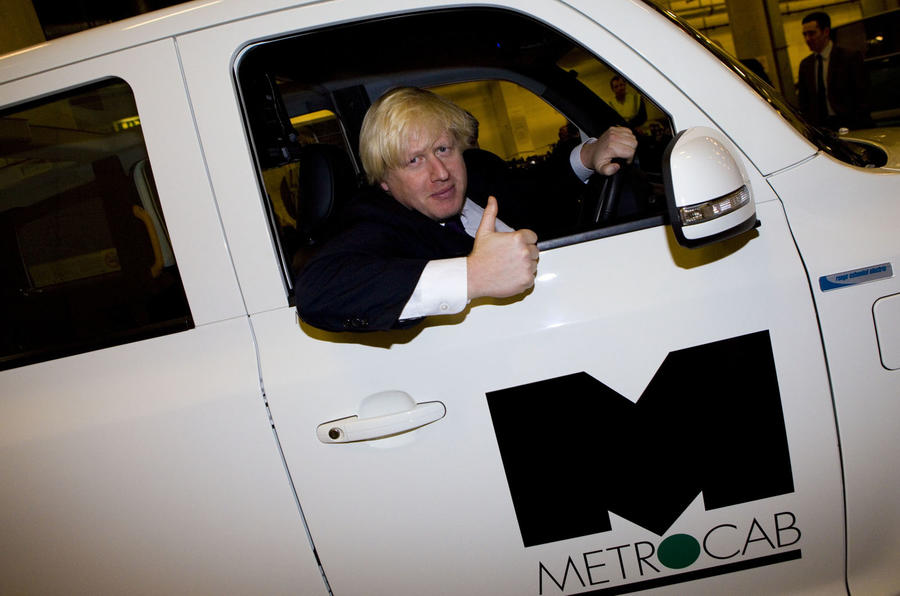Boris Johnson, the Mayor of London, has backed a proposal to offer cash to encourage motorists to trade in old diesel-engined cars for more modern, cleaner vehicles.
Under the proposed scheme, which would effectively be a diesel-specific revival of the vehicle scrappage initiative that ran between 2009 and 2010, motorists would be offered a grant of between £1000 and £2000 to replace cars that don’t meet modern emissions standards.
Giving evidence to the Environmental Audit Committee in London yesterday, Johnson said this was “a brilliant opportunity to support the British car industry and promote the early uptake of ultra low emission vehicles”.
He also expressed sympathy for motorists who had heeded previous government advice to buy more frugal and expensive diesel cars, only for policy makers to change their minds in light of more recent research which suggests particulates in diesel emissions contribute to health issues.
“What we’re saying is it should be between one and two thousand pounds for people who have been seduced into buying a diesel vehicle,” he said.
“I feel very sorry for them. This has been a massive failure of public policy. Millions of people were told that they were doing the environmentally friendly thing by buying a diesel vehicle and they now feel very hacked off that suddenly they’re being told that their vehicles are polluting.
“They deserve support and you could use the diesel scrappage scheme to stimulate the market for cleaner vehicles as the 2009 scheme did."
Johnson estimated that the diesel scrappage scheme would cost the government about £300m, which was the same amount set aside for the original initiative.
The scheme is part of the Mayor’s proposals for an Ultra Low Emission Zone, which could be introduced in central London from 2020.
Charging diesel cars that pollute more to enter the capital is a key part of the ULEZ, and consultation on the zone will begin in late October. It is estimated that the ULEZ would take London two-thirds of the way to compliance with EU limit values for nitrogen dioxide (NO2).
The UK is being fined by the European Commission for non-compliance with the EU’s air quality directive, although it is not alone – of the 28 EU states only Malta meets current criteria.
Get the latest car news, reviews and galleries from Autocar direct to your inbox every week. Enter your email address below:





Add your comment
HOW MUCH TO SCRAP BOJO?
Fail
1. How does this 'support the British car industry'? Sure, it will stimulate extra sales but what proportion of UK car sales are produced in British industry? Remember that under the 2009 scheme the biggest beneficiary was Hyundai. Is Boris living in another world where people trade in their near valueless car for an £80,000 Range Rover? The old phrase of 'support the British car industry' won't cut it in 2014, we live in a free trading Europe, perhaps if this scheme was Europe-wide it would make more sense.
2. The move to buying diesels has only taken off in the last 10 years and only gathered pace in the last 4 or 5, so logically the bulk of used diesel cars will be worth more than the £2000 cap of this scheme. This article doesn't give any idea of how 'modern' the modern emissions regulations used to exclude older models will be; if they are too modern the incentive won't be there to take the £2000 as the cars will be worth more but if the cut off point is older regulations the amount of vehicles eligible will be much less, and the scheme will be near pointless.
3. Surely there are simpler ways to encourage people to switch to less environmentally-harmful vehicles (I detest the 'phrase environmentally-friendly', walking to the park and planting a tree is environmentally-friendly, driving a car of any kind is not). The government controls taxes on new cars, and on fuel as well as road tax. Why not remove VAT on the sale of new cars that meet harsher emissions regulations? Why not reduce fuel duty on petrol compared to diesel? Why not increase road tax for diesel vehicles? And of course if the government really wanted to encourage us to drive vehicles without harmful emissions at the tailpipe they would put investment into a future network of electric charging stations or hydrogen fuel station.
London-centric